2023 Global Fashion Industry Digital Development Summit Forum held in Keqiao
Currently, the digital transformation of the textile industry is being carried out from a single link and segmented fields to the entire industry ecosystem, bringing value growth such as improved production efficiency, improved product creativity, stimulated market vitality, and innovative business models to enterprises.
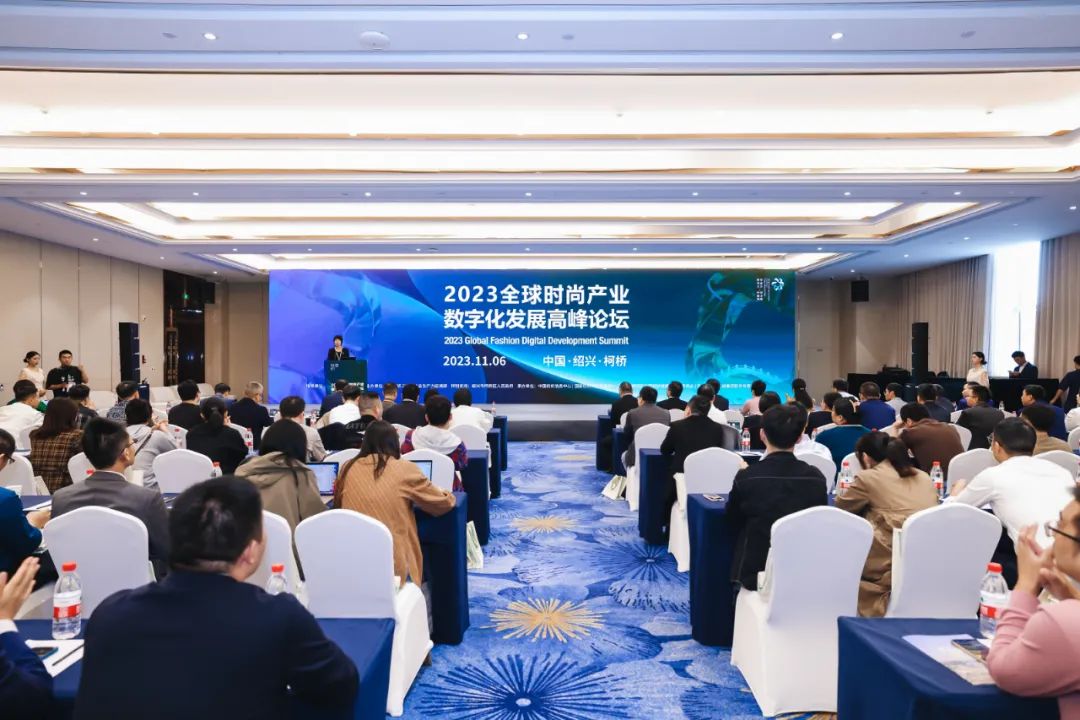
On November 6th, the 2023 Global Fashion Industry Digital Development Summit Forum was held in Keqiao, Shaoxing. As an important series of activities at the 6th World Cloth Fair in 2023, the forum focuses on new challenges and opportunities under the digital revolution, with the theme of "digital creation of new value, technology creation of new tools". It conducts in-depth discussions around three major topics: smart design, smart management, and smart marketing, promoting the innovative integration of digital and fashion, smart and design, and smart and manufacturing, in order to stimulate the digital innovation vitality of fashion enterprises, Promoting the digital transformation of the entire industry chain has brought feasible solutions.
Xu Yingxin, Vice President of the China Textile Industry Federation, Fang Meimei, Member of the Standing Committee of the Keqiao District Committee and United Front Work Department, Hu Song, Vice Director of the China Textile Information Center, Li Binhong, Director of the National Textile Product Development Center, Qi Mei, Vice President of the China Fashion Color Association and Director of the Fashion Trend Department of the China Textile Information Center, Li Xin, Vice Director of the Fashion Intelligence Department of the China Textile Information Center, and Vice General Manager of Zhejiang China Light Textile City Group Co., Ltd The Secretary of the Board of Directors, Ma Xiaofeng, and other leaders and guests attended. The forum was chaired by Chen Xiaoli, Secretary General of the Secretariat of the China Textile Federation Product Development Base and Director of the Product Development Department of the China Textile Information

Deepen the integration of data and reality, and explore the digital future together

Faced with the accelerated evolution of the world's century long changes and the profound adjustment of the global textile industry pattern, on the one hand, China's textile industry faces multiple challenges such as continuous technological innovation, restructuring of industrial layout, and changes in social demand; on the other hand, the deep integration of the digital economy and the real economy brings new dividends to China's textile economy. President Xu Yingxin proposed in his speech that there are three major trends in the digital transformation of the textile industry. Firstly, digital technology helps optimize business processes and improve the quality and efficiency of enterprise production; Secondly, digital technology helps to enhance decision-making capabilities and enhance enterprise product innovation capabilities; Thirdly, multiple parties should collaborate to innovate the ecosystem and promote the integration and development of digital technology and the textile industry. He stated that digital technology will inevitably achieve diversified applications in a wider range of fields in China's textile industry, further stimulate industrial vitality, shape industrial resilience, and achieve sustainable innovative development.
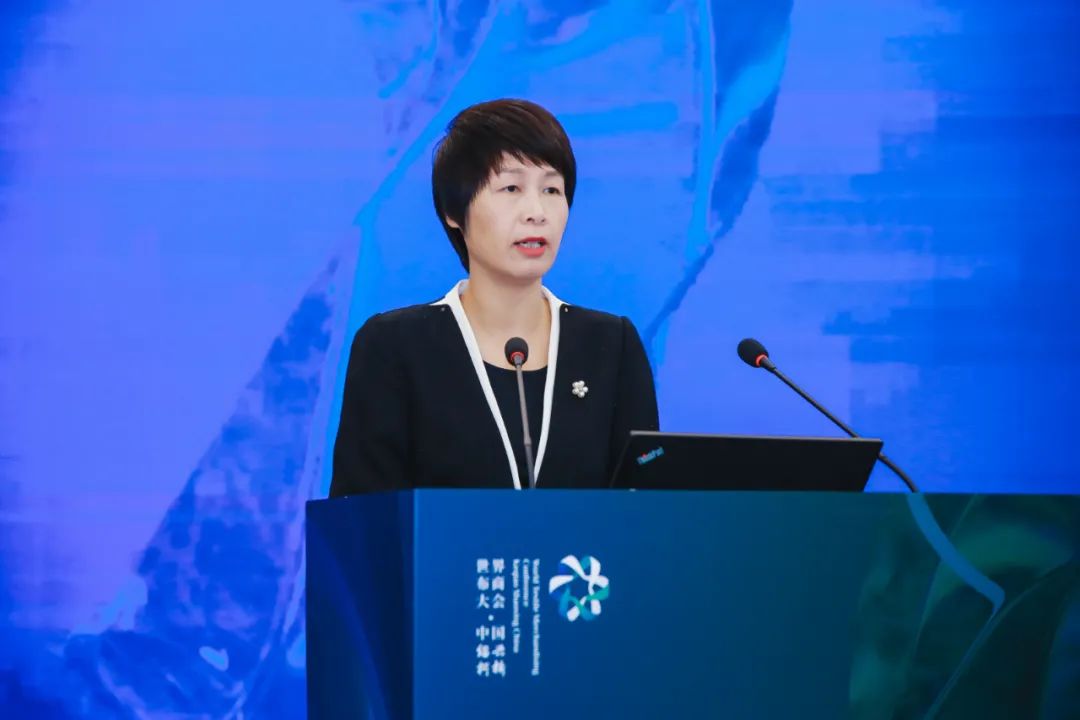
In her speech, Fang Meimei, a standing committee member, stated that digital technology has not only changed the production, consumption, and communication methods of the fashion industry, but also gave birth to new fashion forms, new fashion values, and new fashion culture. Digital technology has made the fashion industry more intelligent, efficient, environmentally friendly, and personalized, as well as more open, diverse, innovative, and inclusive. In recent years, Keqiao has taken digital reform as the driving force to accelerate the iterative upgrading of the light textile city field, fully integrate digital creativity, innovate digital scenes, continue to promote the integration of the textile industry and digital fashion, strengthen the "fashion engine" of industrial iteration, prosper the unique "fashion culture", and shape a "fashion temperament" that combines form and spirit.
Explore advanced achievements and establish innovative benchmarks
The Action Plan for Building a Modern Textile Industry System (2022-2035) clearly states the need to promote deep integration and innovation between the new generation of digital technology and the textile industry, comprehensively improve the development level of digitalization, networking, and intelligent manufacturing, promote the application of digital technology in fields such as research and development design, marketing, and industrial chain collaboration, enhance the ability of digital and real integration innovation, and build a digital and real integration innovation ecosystem.
In order to further summarize and promote the innovative achievements and practical experience of digital transformation of outstanding enterprises in the textile industry, and promote the research and application of digital transformation of the industry, China Textile Information Center and the National Textile Product Development Center jointly carried out a collection activity of "2023 Top Ten Digital Technology Innovation Cases and Top Ten Textile Enterprises CIO (Chief Digital Officer)", and selected a number of scientific, progressiveness The practical technical achievements and solutions have excavated numerous industry elites who have made significant contributions in digital technology applications, enterprise digital management, and other aspects, and an announcement ceremony was held at this forum.
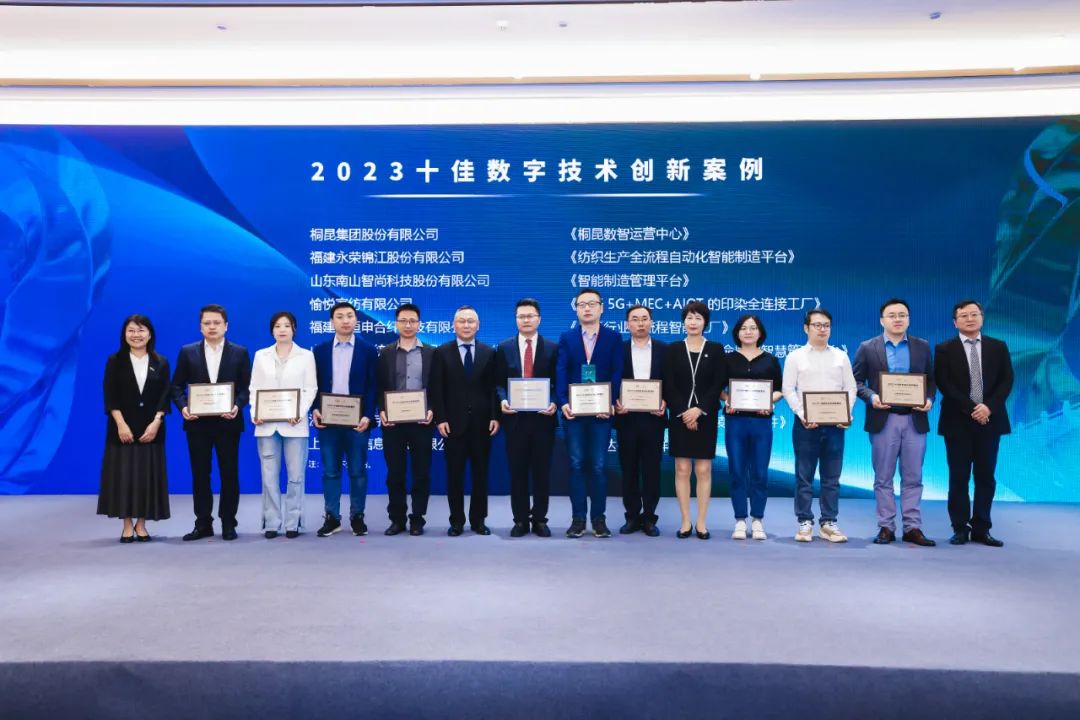
From Tongkun Group Co., Ltd., Fujian Yongrong Jinjiang Co., Ltd., Shandong Nanshan Zhishang Technology Co., Ltd., Joyful Home Textile Co., Ltd., Fujian Hengshen Synthetic Fiber Technology Co., Ltd., Shandong Ruyi Woolen Clothing Group Co., Ltd., Wujiang Deyi Fashion Fabric Co., Ltd., Shaoxing Wensheng Textile Co., Ltd., Zhejiang Lingdi Digital Technology Co., Ltd Shanghai Mengke Information Technology Co., Ltd. has won the "2023 Top 10 Digital Technology Innovation Cases" for its excellent digital transformation cases from ten enterprises.
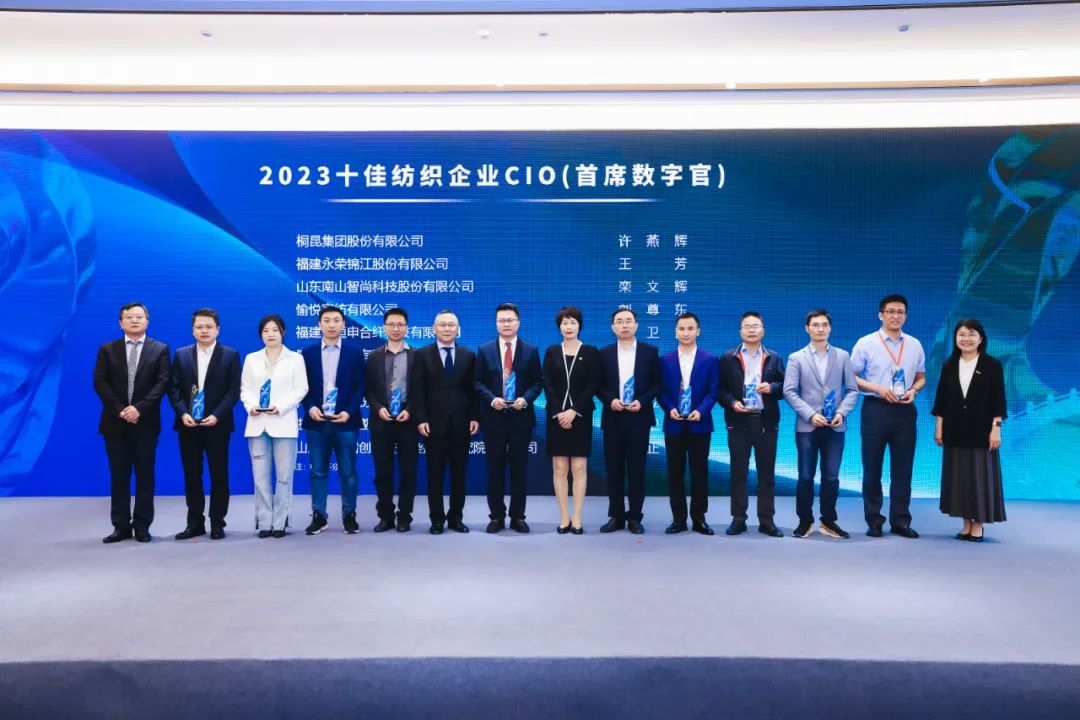
Xu Yanhui from Tongkun Group Co., Ltd., Wang Fang from Fujian Yongrong Jinjiang Co., Ltd., Luan Wenhui from Shandong Nanshan Zhishang Technology Co., Ltd., Liu Zundong from Joyful Home Textile Co., Ltd., Xiao Weimin from Fujian Hengshen Synthetic Fiber Technology Co., Ltd., Zhang Wuhui from Kangsaini Group Co., Ltd., Yao Zhenggang from Wujiang Deyi Fashion Fabric Co., Ltd., Wu Libin from Chuanhua Zhilian Co., Ltd., Yao Weiliang from Zhejiang Jiaming Dyeing and Finishing Co., Ltd Hu Zhengpeng, from Shandong Zhongkang Guochuang Advanced Printing and Dyeing Technology Research Institute Co., Ltd., was awarded the title of "2023 Top Ten Textile Enterprise CIOs (Chief Digital Officer)".
Promote industrial collaboration and stimulate digital vitality
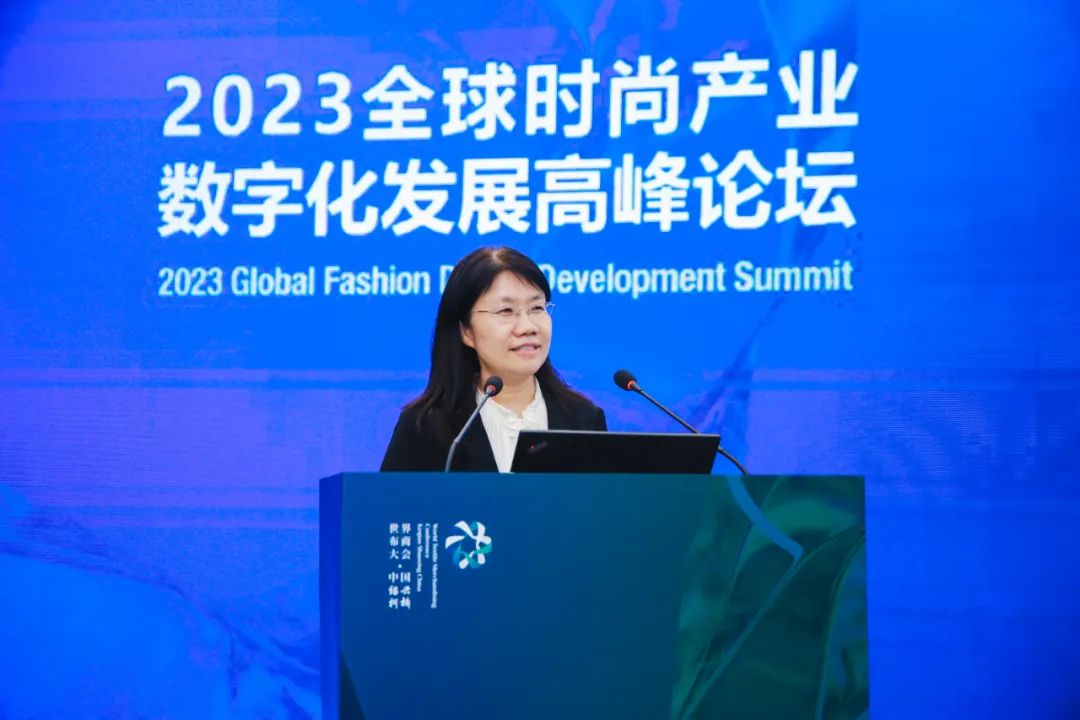
In the keynote speech, Director Li Binhong elaborated on the new trends, paths, and methods emerging from the integration of digital technology and the fashion industry, with the theme of "Seizing the New Dividends of the Digital Era". Under the five typical technological driving characteristics of new interaction, new consumption, new supply, new platform, and new organization, enterprises can consider the value path of digital technology from the perspectives of demand side, supply side, and production side. By focusing on the carriers, processes, and partners of value creation, new products and services can be formed, and internal value such as asset operation efficiency and external value such as business performance ability can be improved.
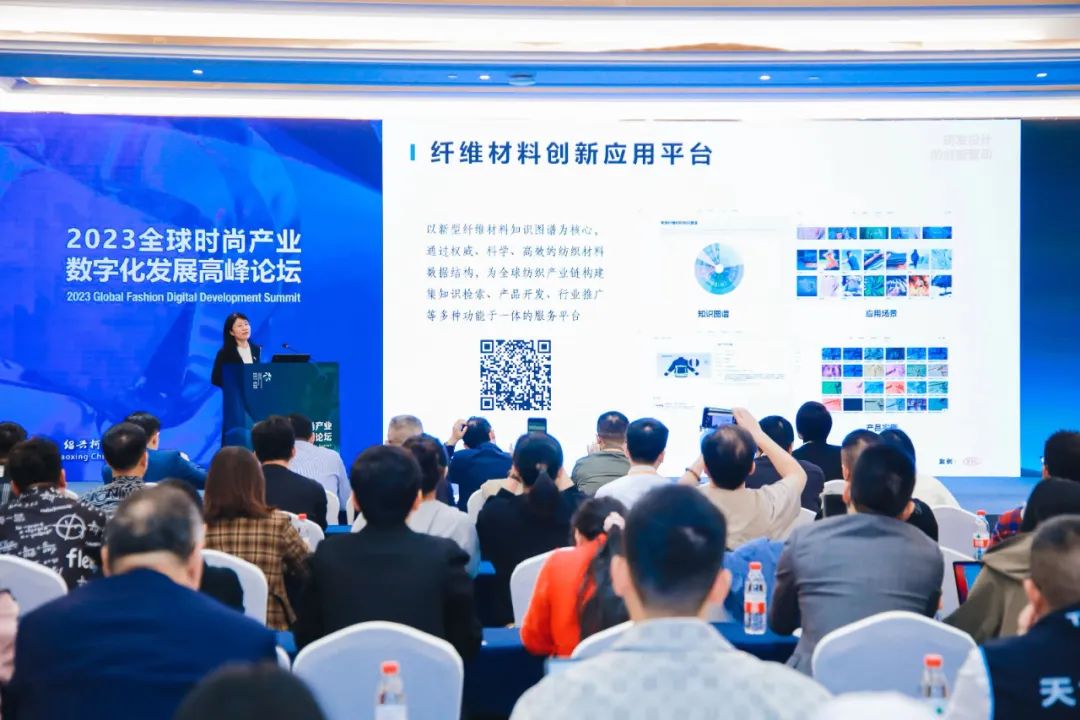
Based on the analysis of practical cases of digital technologies such as AIGC, 3D clothing design, intelligent factories, and cross-border e-commerce, Director Li Binhong proposed innovative application directions for digital technologies such as creative driving of research and development design, improving quality and efficiency of production and manufacturing, optimizing decision-making of operation management, and marketing. She emphasized the importance of integrating the small and large ecosystems of the industry, and pointed out that enterprises should stimulate the innovation vitality of the upstream and downstream of the industry chain by building a digital innovation ecological community in the fashion industry, and promote the coordinated development of the overall ecology. In this era full of turbulence, uncertainty, complexity, and diversity, I believe that under the leadership of the China Textile Industry Federation, Chinese textile people have a vision and can create value. I hope everyone can embrace the changes of the times and become unique, creative, and ambitious Chinese textile people
Breaking through technical barriers and creating value through digital means
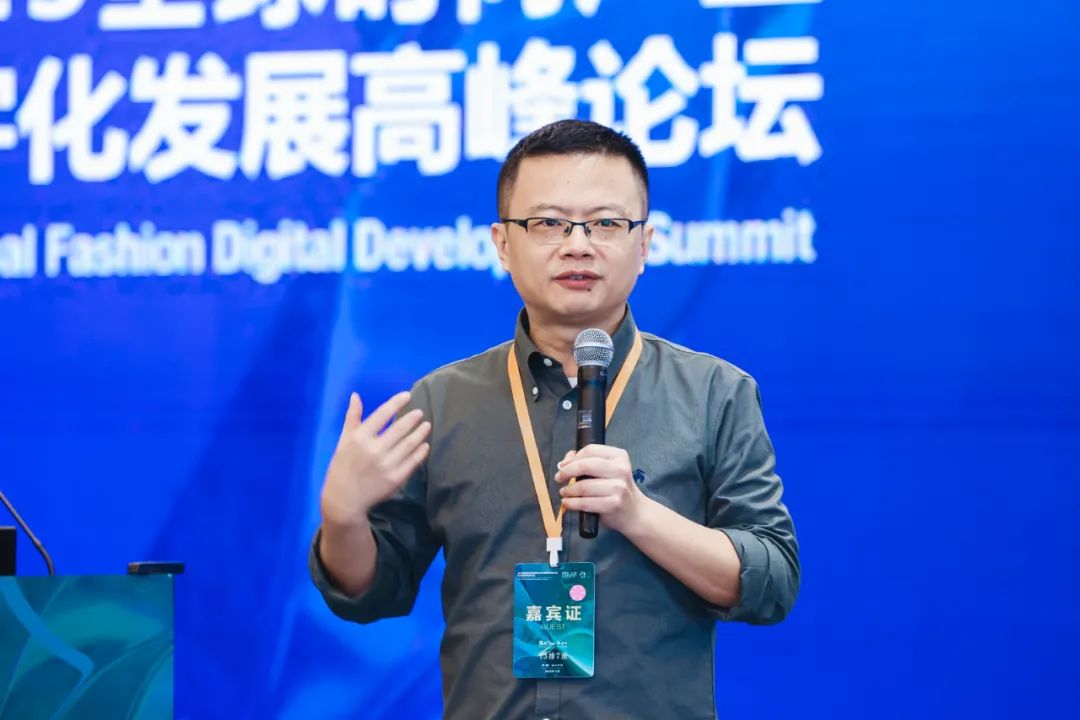
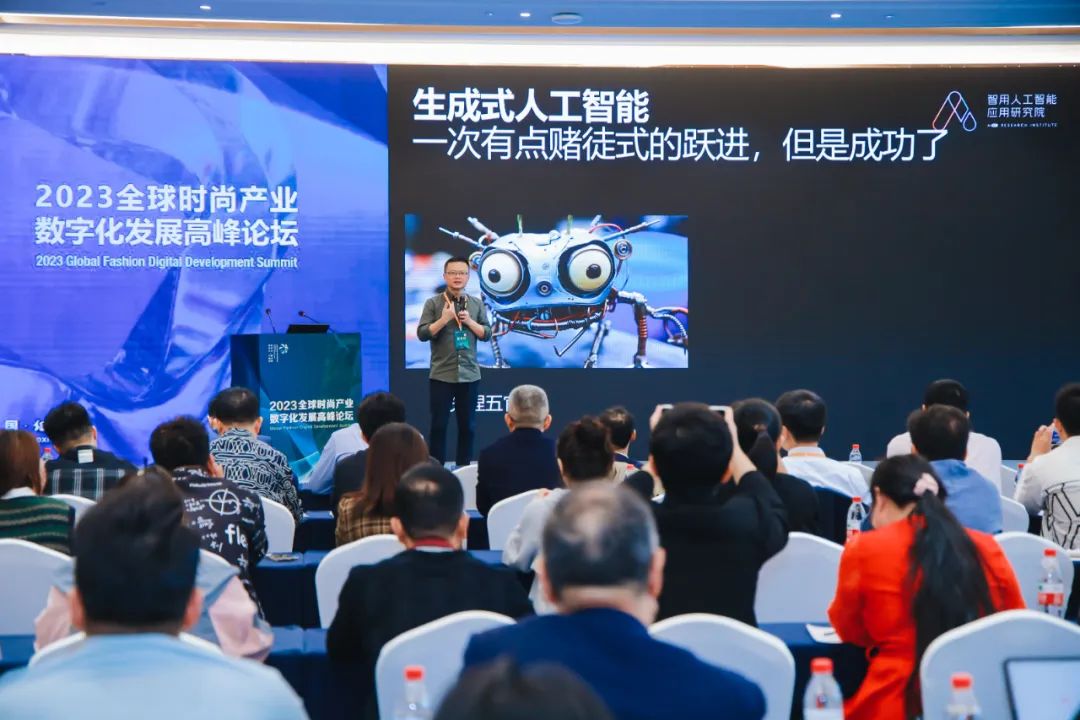
Guan Zhen, President of Ai4C Application Research Institute and former Chief Technical Advisor of Microsoft, used ChatGPT as an example in his keynote speech on "AIGC Technology Helps High Quality Development of the Textile Industry" to point out the application and implementation direction of AIGC technology and large models in the textile industry, demonstrating the functional advantages of AIGC in enhancing design creativity, production quality control, process improvement, e-commerce description optimization, and data assisted management. He stated that artificial intelligence, whether in market research and product development, procurement and supply chain management, as well as in e-commerce platforms, international trade and logistics, will greatly improve the operational efficiency of the entire supply chain of enterprises.
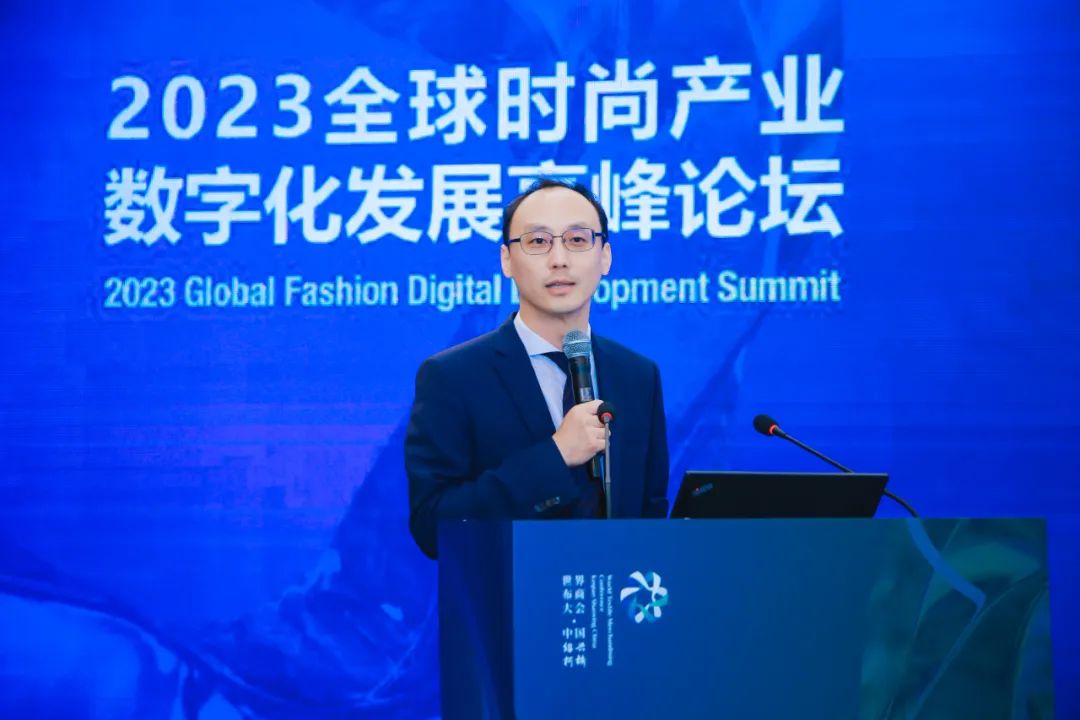
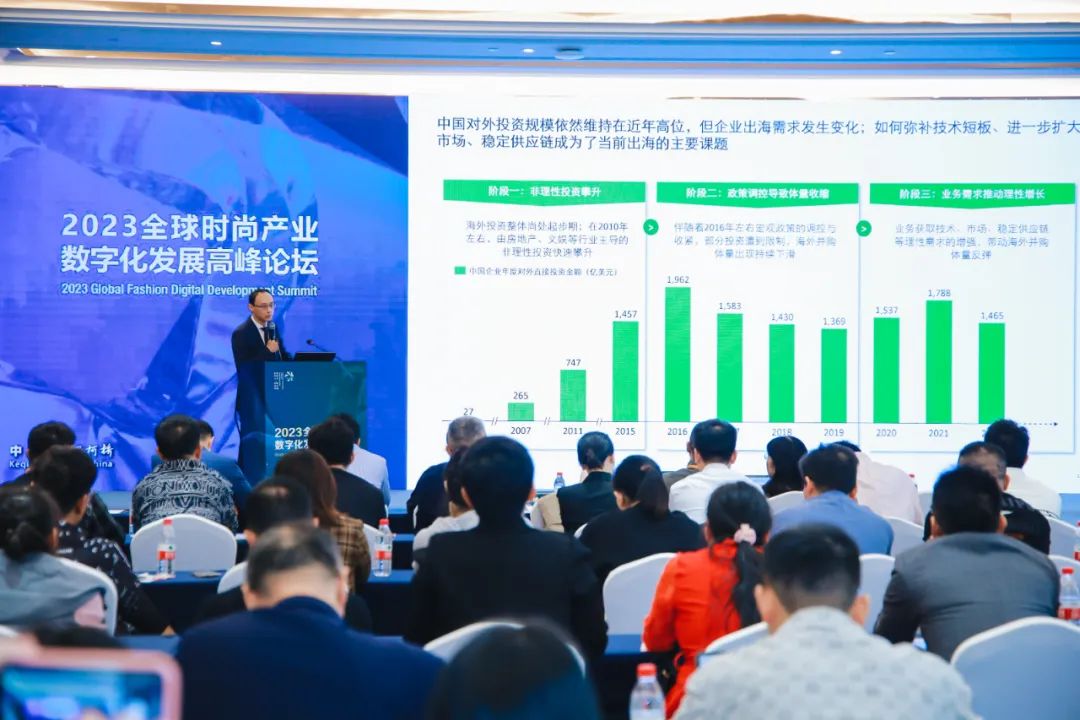
The scale of China's foreign investment remains at a high level in recent years. How can enterprises make up for their technological shortcomings, expand overseas markets, and stabilize their supply chains? Chen Weihao, the leading partner of Deloitte China Management Consulting M&A Integration and Restructuring Services, has provided a problem-solving approach of "strategy operation business support" for Chinese enterprises on their way out of the sea, focusing on the theme of "Overseas Business Operation Model and Supply Chain Management of Textile Enterprises". He pointed out that establishing a globally integrated large supply chain model is the core element and key issue that textile enterprises need to consider when going overseas. It can be comprehensively considered from product research and development, marketing, delivery services, and digital platform levels to expand the global market of enterprises.
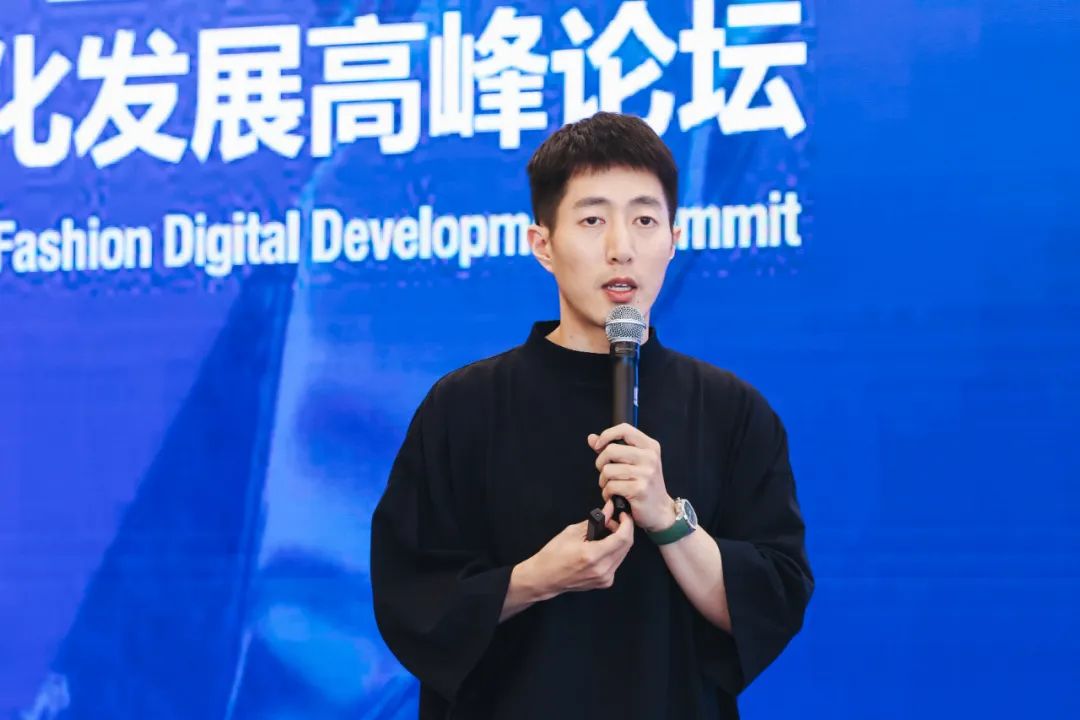
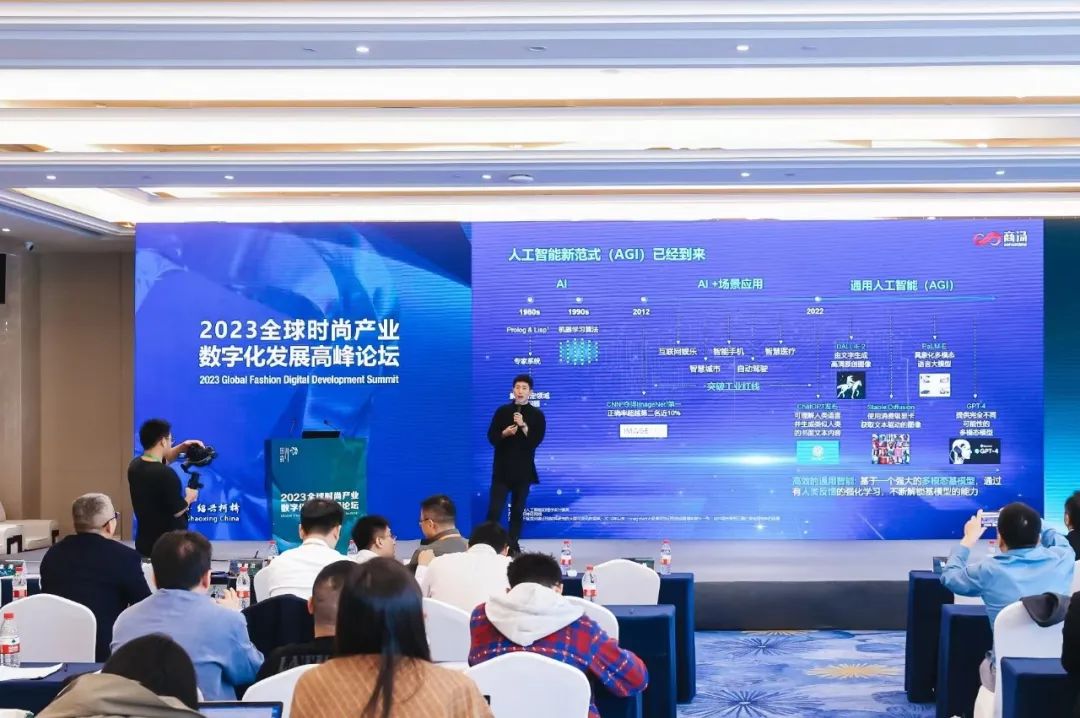
Li Xingye, Business Director of Shangtang Technology and Vice President of the Digital Entertainment Business Unit, shared two paths for AIGC technology to empower textile and clothing enterprises, titled "AIGC makes the fashion industry have their own" AI ". He pointed out that based on the AIGC technology system, the textile industry can quickly layout the digital fashion industry, provide consumers with a real shopping experience, and make marketing more intelligent by creating "AI personas" that are more in line with the fashion industry, helping textile and clothing enterprises build a seamless integration of virtual and real, online and offline intelligent marketing digital ecosystem.
Strengthen system planning and lead the transformation of digital intelligence
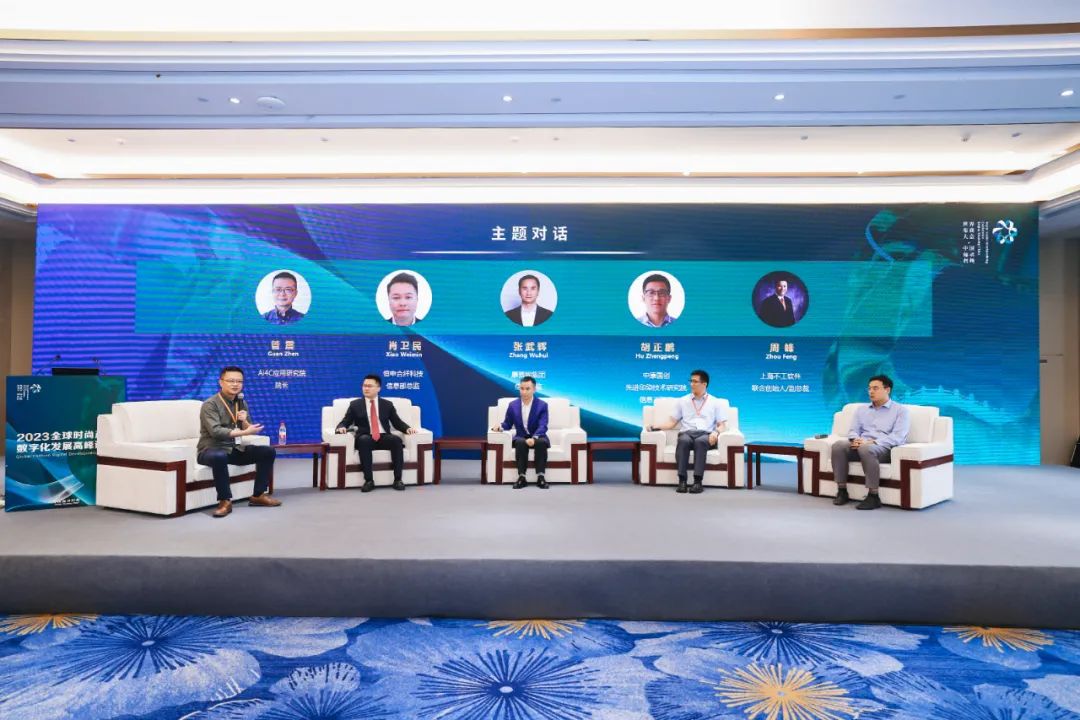
Digital innovation and fashion development are common needs of textile enterprises. In the special dialogue section, Guan Zhen, the Dean of Ai4C Application Research Institute and former Chief Technical Advisor of Microsoft, focused on the theme of "technology creating new tools". He analyzed the mature practical experience and key success factors of excellent enterprises from the perspectives of demand mining, architecture construction, and strategic implementation with fashion industry managers and digital technology experts, and explored a new path for high-quality digital development of the fashion industry.
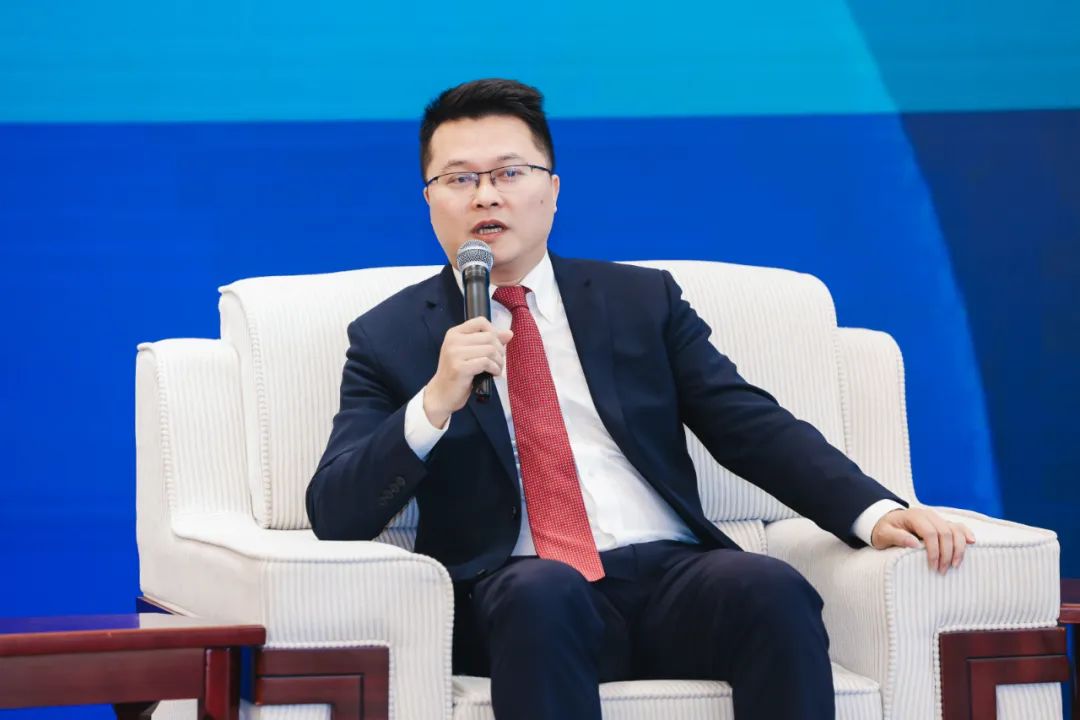
In the process of digital transformation, the leadership's emphasis on technological development and the participation of employees can help form a top-down driving force within the enterprise. "Xiao Weimin, Director of the Information Department of Fujian Hengshen Fiber Technology Co., Ltd., stated that digital transformation requires a clear organizational structure, process specifications, and system planning, as well as professional operators to achieve efficient internal collaboration. In addition, during the transformation process, enterprises have tolerance and patience in innovating their coping strategies, allowing for errors in exploration and learning from them, continuously optimizing and improving.
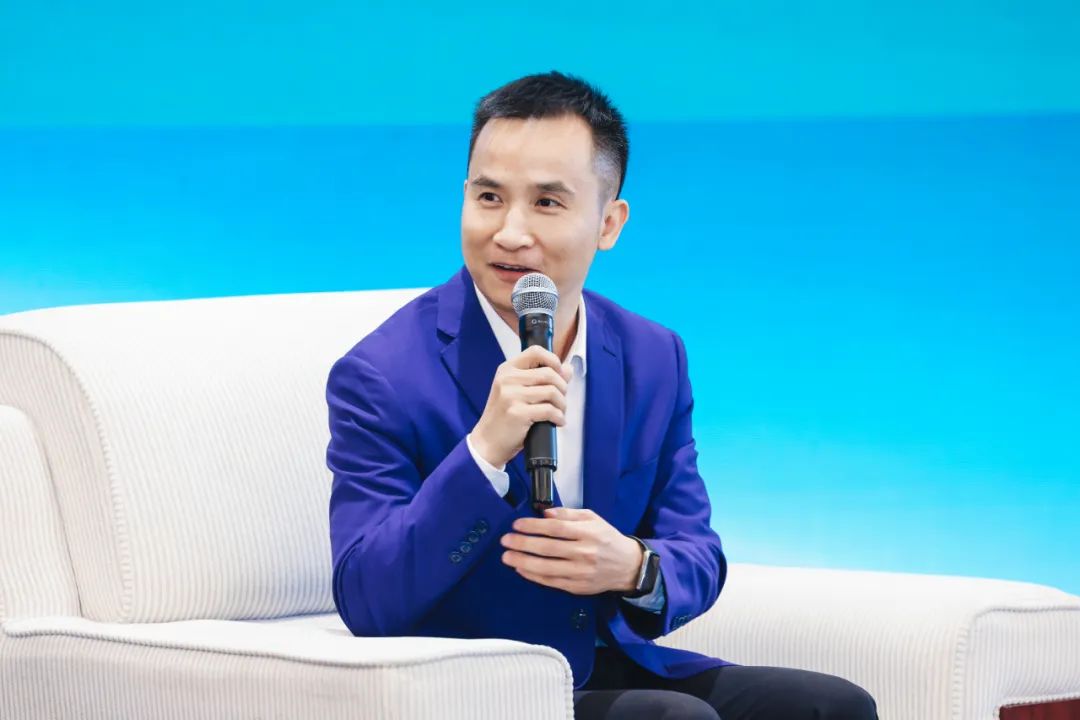
Zhang Wuhui, Information Director of Kangsaini Group Co., Ltd., said that Kangsaini has been planning the construction of an intelligent factory since 2015, providing Siemens with suggestions on process transformation and equipment layout, and combining the company's technological and fashion development needs to create an intelligent factory. He proposed that the digital transformation of enterprises should not be rushed for a moment, but should be continuously improved through repeated communication with suppliers and combined with past practical experience.
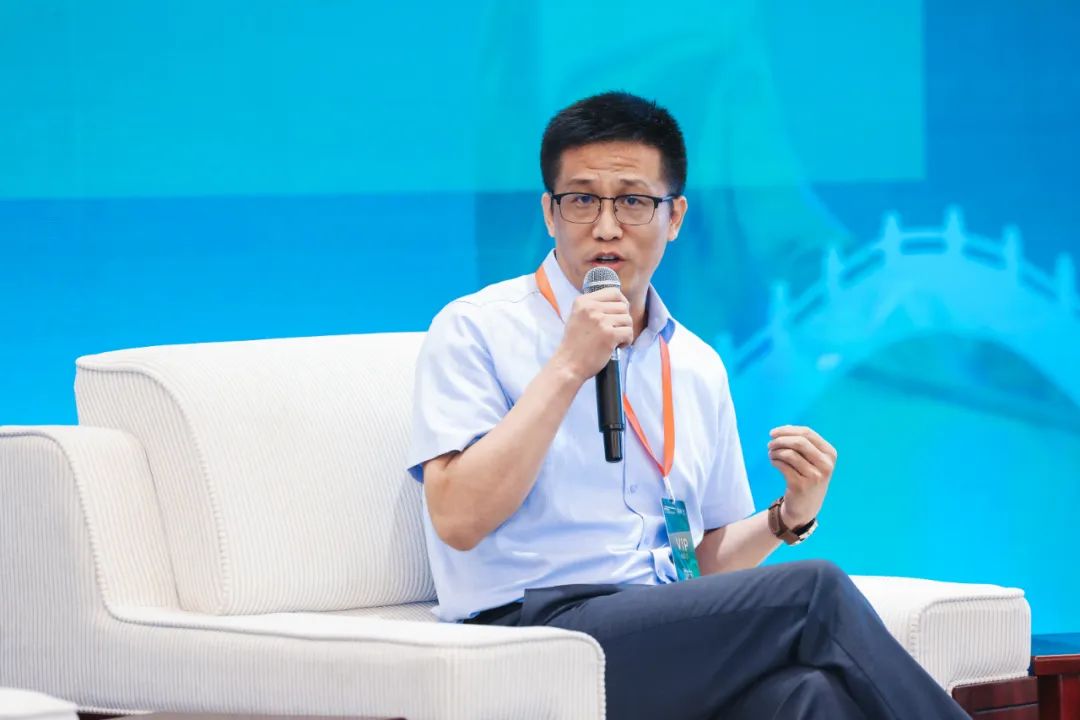
Hu Zhengpeng from Shandong Zhongkang Guochuang Advanced Printing and Dyeing Technology Research Institute Co., Ltd. proposed that in the application of digital innovation, basic management is the key, and it is necessary to stabilize and streamline the management processes at all levels, including the management of strategic, factory, and business unit level teams, personnel, and materials to ensure the formation of innovative development synergy; Secondly, processes are the guarantee for the stable operation of enterprises and need to be adjusted reasonably to meet the needs of enterprise development; Thirdly, a digital base is the foundation, and it is necessary to establish a solid underlying data foundation such as technical networks and 5G coverage in order to support the development of applications and decisions.
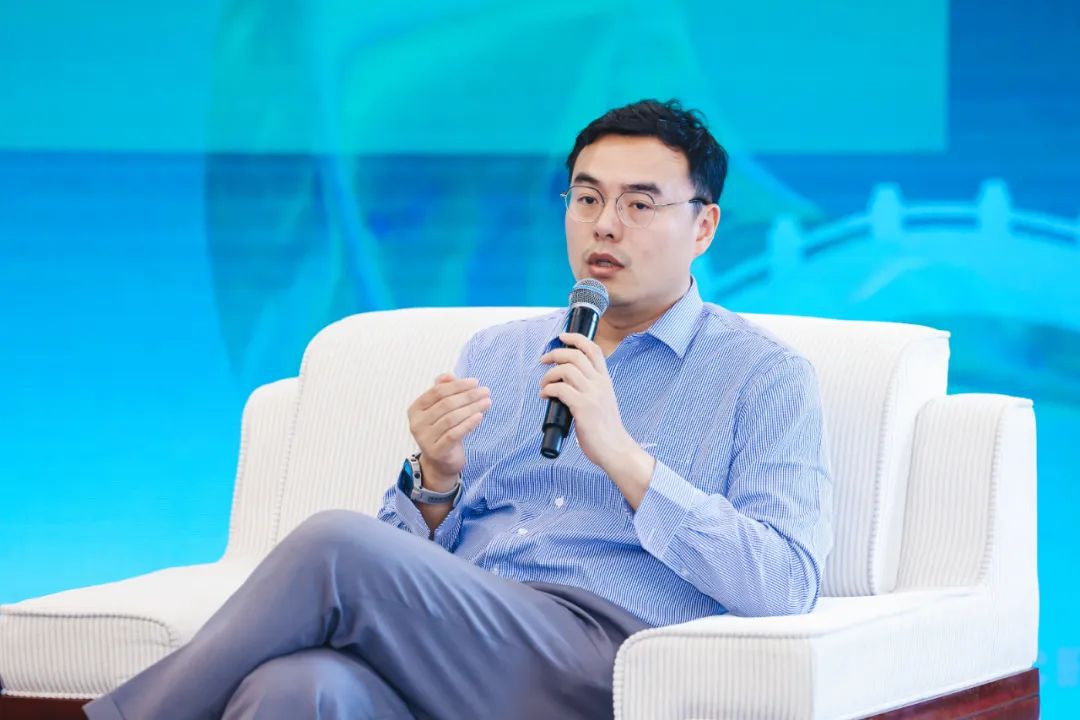
When it comes to the relative relationship between digitalization and enterprise development, Zhou Feng, co-founder and vice president of Shanghai Bugong Software Co., Ltd., stated that digitalization should first serve the business needs of enterprises, help them reduce costs and increase efficiency, and assist entrepreneurs in making decisions, so that management can see and solve problems. Enterprises should make timely adjustments based on market fluctuations in the production and supply processes, consider digital transformation from a business closed-loop perspective, and achieve integrated intelligent management in order, sales forecasting, planning, work order issuance, execution, and shipment to ensure high-quality conversion of enterprise production resources.
Anchoring digital course and accelerating intelligent transformation. This forum is led by technological innovation, providing professional theoretical support and practical solutions for fashion enterprises to optimize business processes and enhance decision-making capabilities through digital technology. It helps enterprises grasp the innovative direction of technology empowering high-quality development, reshape new competitive advantages through digitization, and drive new value growth.
Post time: Nov-09-2023

